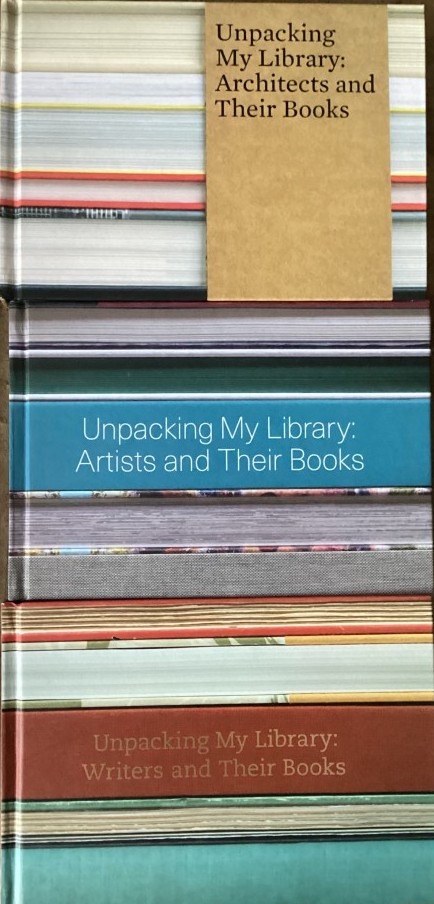Inspiring Older Readers
 posted on 05 Sep 2022
posted on 05 Sep 2022
 Nosing around other people’s bookshelves
Nosing around other people’s bookshelves
If you are foolish enough to invite me into your house, be prepared for me to make a beeline for your bookshelves, your record collection or your box of cds. It’s not something I have any control over and even if you do get me to sit down and I’m anywhere near your books, my eyes will be constantly straying towards them. What I’d really like to do after I’ve given them the once over is talk about them – although it’s rare for any host to think that this is anything more than the actions of a complete nutcase.
There are few things that make me more uncomfortable than to find myself in a house with no books on display – what, I ask myself, is wrong with these people? I have to confess that I’m unforgivably judgemental about the absence of books or a shelf full of Readers Digest condensed classics – I can’t help feeling that I’m going to have to work extra hard to get to know these people.
In the words of the novelist Anthony Powell, ‘books do furnish a room’ and it’s undoubtedly true that what you put on your bookshelves says quite a lot about the way you want to present yourself to the world. In that sense, books on the shelf are similar in their social function to the clothes you wear – they tell the world how you want to be seen and thought of.
I like to think of my own shelves as a physical manifestation of my inner mental and spiritual landscape and a statement about myself and my life as a reader that I don’t have to articulate – the books that I own don’t have to be explained or apologised for. If you then find that the ‘spirit’ of your bookshelves is replicated or sympathetically matched in someone else’s house, you immediately know that there’s potentially a fruitful relationship to be had with the owner of these books.
These feelings about your book collection and what it means for other people to look at (and hopefully admire) them is what underpins the series of publications from Yale University Press entitled ‘Unpacking My Library’.
“Taking its inspiration from Walter Benjamin’s seminal 1931 essay, the Unpacking My Library series charts a spirited exploration of the reading and book collecting practices of today’s leading thinkers.”
There are three volumes in the Unpacking My Library series: Artists and Their Books, Writers and Their Books and Architects and Their Books but each has a different editor and foreword author. However, the format of each is the same and acknowledges the likely motive of most of the readers – a chance to ogle the bookshelves of some famous writers, artists and architects and see the books they want us to admire.
Of course, the studied spontaneity of the ‘shelfies’ that we’re given is artifice and the accompanying interviews matter much less than the books we can metaphorically run our fingers along. Needless to say, given my own interests, I’m most drawn to and intrigued by Writers and Their Books even though the focus is very much on American literature:
“As words and stories are increasingly disseminated through digital means, the significance of the book as object—whether pristine collectible or battered relic—is growing as well. Unpacking My Library: Writers and Their Books spotlights the personal libraries of thirteen favorite novelists who share their collections with readers. Stunning photographs provide full views of the libraries and close-ups of individual volumes: first editions, worn textbooks, pristine hardcovers, and childhood companions……..
Unpacking My Library: Writers and Their Books features the personal libraries of Alison Bechdel, Stephen Carter, Junot Díaz, Rebecca Goldstein and Steven Pinker, Lev Grossman and Sophie Gee, Jonathan Lethem, Claire Messud and James Wood, Philip Pullman, Gary Shteyngart, and Edmund White.”
The same spirit runs through the other two volumes - artists and architects throwing open their bookshelves to be admired (or, say it quietly, condemned) by us as voyeurs.
These books are a delightful bit of fluff for bibliophiles who can’t resist other people’s bookshelves. With these you can be as nosy as you like and be as judgemental as you please from the comfort of your own armchair.
Expect to pay between £10 and £15 for each volume.
Terry Potter
September 2022